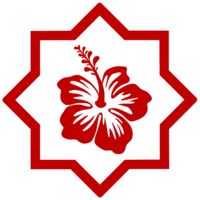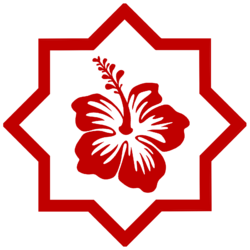Politics of Glanodel: Difference between revisions
Jump to navigation
Jump to search
No edit summary |
|||
| Line 1: | Line 1: | ||
{{Template:Politics of Glanodel}} | {{Template:Politics of Glanodel}} | ||
[[Glanodel]], officially the Glanish Commonwealth is a {{wp|federation|federal}} {{wp|republic}} in which the president, Congress, and courts share powers reserved to the federal government according to its [[Constitution of the Glanish Commonwealth|Constitution]]. At the same time, the federal government shares {{wp|sovereignty}} with the cantonal governments. | <!--[[Glanodel]], officially the Glanish Commonwealth is a {{wp|federation|federal}} {{wp|republic}} in which the president, Congress, and courts share powers reserved to the federal government according to its [[Constitution of the Glanish Commonwealth|Constitution]]. At the same time, the federal government shares {{wp|sovereignty}} with the cantonal governments. | ||
The Glanish political system differs from that of most developed democracies in a variety of ways. Perhaps the three most notable being the {{wp|executive (government)|executive branch's}} formal separation from the legislature, greater powers exercised by the legislature's {{wp|upper house}}, and the extent of influence over the application of law expressed by the {{wp|judiciary}}. The executive branch is led by the President and their {{wp|cabinet (government)|cabinet}}, composed of the various heads of the executive agencies and departments. {{wp|legislature|Legislative power}} is vested in the {{wp|bicameralism|two chambers}} of the [[Congress of the Commonwealth]] (''Kongres Glanodæl''; unofficially referred to as the ''Landsmót'', tr. Landsmeet), the Council of State (''Senatet''; {{wp|upper house}}) and the National Council (''Nationalråd'', {{wp|lower house}}). The federal judiciary is composed of the Supreme Court and lower federal courts, and function as the {{wp|judicial review|interpreters}} of the Constitution and federal laws and regulations. This includes resolving disputes between the executive and legislative branches. The federal government's layout is explained in the Constitution. | The Glanish political system differs from that of most developed democracies in a variety of ways. Perhaps the three most notable being the {{wp|executive (government)|executive branch's}} formal separation from the legislature, greater powers exercised by the legislature's {{wp|upper house}}, and the extent of influence over the application of law expressed by the {{wp|judiciary}}. The executive branch is led by the President and their {{wp|cabinet (government)|cabinet}}, composed of the various heads of the executive agencies and departments. {{wp|legislature|Legislative power}} is vested in the {{wp|bicameralism|two chambers}} of the [[Congress of the Commonwealth]] (''Kongres Glanodæl''; unofficially referred to as the ''Landsmót'', tr. Landsmeet), the Council of State (''Senatet''; {{wp|upper house}}) and the National Council (''Nationalråd'', {{wp|lower house}}). The federal judiciary is composed of the Supreme Court and lower federal courts, and function as the {{wp|judicial review|interpreters}} of the Constitution and federal laws and regulations. This includes resolving disputes between the executive and legislative branches. The federal government's layout is explained in the Constitution. | ||
| Line 18: | Line 18: | ||
===Direct democracy=== | ===Direct democracy=== | ||
[[File:Glanodel-Referendum.jpg|250px|thumbnail|right|A photograph taken of Glanish citizens in the streets of Vænholm in 1953 to vote in a referendum over the implementation of a universal health care system.]] | |||
Glanodel features a system of government that is fairly unique, sometimes called half-direct democracy. {{wp|referendum|Referenda}} on the most important laws have been used since the Second Constitution. Amendments to the Constitution or changes to federal laws that have no foundation in the constitution but will remain in force for more than one year must be approved by the majority of both the people and the cantons, a {{wp|double majority}}. The Government and Congress can supplement the proposed amendment with a counter-proposal, and then voters must indicate a preference on the ballot in case both proposals are accepted. | Glanodel features a system of government that is fairly unique, sometimes called half-direct democracy. {{wp|referendum|Referenda}} on the most important laws have been used since the Second Constitution. Amendments to the Constitution or changes to federal laws that have no foundation in the constitution but will remain in force for more than one year must be approved by the majority of both the people and the cantons, a {{wp|double majority}}. The Government and Congress can supplement the proposed amendment with a counter-proposal, and then voters must indicate a preference on the ballot in case both proposals are accepted. | ||
| Line 267: | Line 267: | ||
The federal Constitution safeguards judicial independence by providing that federal judges shall hold office "during good behavior"; in practice, this usually means they serve until they die, retire, or resign. A judge who commits an offense while in office may be impeached in the same way as the President or other officials of the federal government. Federal judges are appointed by the President, subject to confirmation by the Council of States. | The federal Constitution safeguards judicial independence by providing that federal judges shall hold office "during good behavior"; in practice, this usually means they serve until they die, retire, or resign. A judge who commits an offense while in office may be impeached in the same way as the President or other officials of the federal government. Federal judges are appointed by the President, subject to confirmation by the Council of States. | ||
Many generally, left-leaning, public officials have claimed that Glanish lawmaking operates under a partial {{wp|Kritarchy|kritarchy}}, or rule by the judiciary. This accusation is mostly in reference to the tendency of the Glanish political system to rely more on legal precedents than in the passing of new laws. This tendency is commonly referred to as the ''"simple governance approach"'' and is believed by a narrow majority of the Glanish public (52%) to help prevent the creation of unneeded or overly complicated bureaucracy within the government. | Many generally, left-leaning, public officials have claimed that Glanish lawmaking operates under a partial {{wp|Kritarchy|kritarchy}}, or rule by the judiciary. This accusation is mostly in reference to the tendency of the Glanish political system to rely more on legal precedents than in the passing of new laws. This tendency is commonly referred to as the ''"simple governance approach"'' and is believed by a narrow majority of the Glanish public (52%) to help prevent the creation of unneeded or overly complicated bureaucracy within the government.--> | ||
{{Template:Glanodel}} | {{Template:Glanodel}} | ||
Latest revision as of 21:34, 16 October 2022
 |
|---|
| This article is part of a series on the politics and government of Glanodel |
